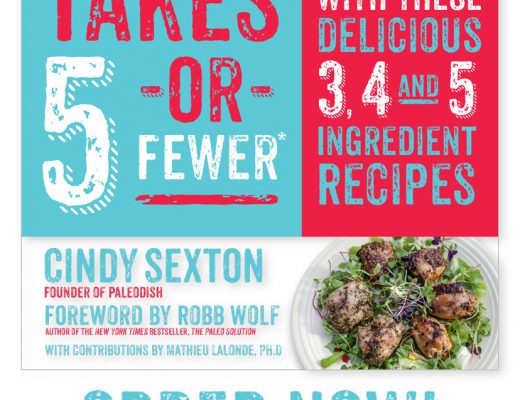Before my main and only hobby became paleo and paleo assorted activities, I spent a lot of time arguing with people. Let me backtrack a bit. In high school I lettered three times in Speech and Debate. Later, I spent some time in college studying philosophy, and further still took it upon myself to learn about logic and logical fallacies. So I like to think I know a little bit about how to try to be persuasive and logically coherent.
So it really dismays me when a movement founded in a scientific hypothesis and backed by fairly substantial scientific and medical research is often argued from weaker positions than it ought to be. I hope to help you to make better arguments when trying to convince your friends and shame your enemies into trying to eat a healthy diet. And the fallacy I hear most often in this movement is the naturalistic fallacy. It drives me nuts.
What Is the Naturalistic Fallacy?
First described by the philosopher G. E. Moore in his Principia Ethica (not a particularly fun read, by the way; there are no fights and no sex in that one), the naturalistic fallacy describes the conflating of “good” with “natural”. If your were to say that you prefer organic vegetables because they are more natural, you are relying on your audience using this conflation to understand that organic is good because it is more natural. You are furthermore attempting to end the argument by capitulation, as you assume that this is all the reasoning anyone might need.
But organic vegetables are not better because they are more natural. They are better because they lack the chemical residue from pesticides and herbicides that could potentially be harmful to your body.
Many things are natural. Some of them are great and fantastic. Some of them, such as venom, viruses, prions, parasites, earthquakes, volcanoes, and the complete works of Nickleback are terrible blights that cause the death and ruination for millions (actually, I take it back. There’s definitely something unnatural about Nickleback). Most things are somewhere in between black death and a carrot. Our job, as the resident species with scientific thinking, is to figure out what things are good and what things are bad.
Why is invoking nature bad?
First of all, you have to define what natural is. Humans, themselves, are natural, after all. Shouldn’t the products of nature all be natural themselves? People often throw around terms like “chemical” or “artificial” or “man-made” without considering how much what they are fearing is based on natural design to begin with and how much of what they consider natural is heavily influenced by man.
But say you actually have a good definition for natural. Let’s grant that natural is anything that could have potentially have existed before the time of Homo erectus. Still, the value of a product is not determined by whether it comes from a natural source, but whether it actually has value.
I believe in grass-fed meats, but let’s suppose the nutritional value of meat was actually enhanced by growing cows in a lab. Then, that artificial choice would be more nutrient dense (by definition), regardless of natural considerations. Is it better? We’d have to look at the science of how it was developed, what the process does to the environment, and what reprocussions might you get from that meat – is it laden with chemicals potentially hazardous to your health? Then we choose not to eat it not because it is “unnatural” but because it’s not as good for us as the real deal.
How Is the Naturalistic Fallacy Often Heard?
Here are some examples of people invoking “natural” as definitively good or “artificial” as definitively bad.
- “Ew… I can’t pronounce that ingredient!”
It’s frustrating to hear that any ingredient you can’t easily read must be bad. Your literacy is not the reason that you don’t want to eat monosodium glutamate! You don’t want to eat MSG because it happens to be in a family of neurotransmitters and is suspected to cause neurological issues if consumed in a large enough dose. What if you read the ingredient “carboxylic acid”, often found on food labels? Sounds super scary, yes? Well, I use that in my cooking all the time. It’s cream of tartar. - “Australopithecus didn’t eat that food, so we shouldn’t either!”
This kind of argument is heard so much in the ancestral health community and is absolutely the wrong direction to look. The earliest humans lived on one continent and had a very limited diet compared to what you have available now. Not to mention, even if we wanted to replicate their exact diets we couldn’t. Plants have evolved and soil has changed And, early Cro Magnons had very region specific diets. That does not mean that you can’t eat squash because it came from the Americas and has only been eaten by humans for 15,000 years! The paleolithic concept is just a hypothesis. It is not a law that you must follow. The idea is that the human body has come to easily digest (evolved if you’re a believer in that sort of thing) to eat certain foods and not others. From there, we test all the foods we have and see what the human body actually can eat to function best. - “Man made things only poison the body.”
There are PLENTY of man-made things that do wonderful things for the body. For example, fermented foods become so by man – and aren’t we grateful for that? On the same token, not all poison is man made – there’s plenty of natural poisons. Sometimes, a man-made version is better… like with peach flavoring. Do you know what they used to do to create peach flavoring? They would boil peach pits to release the peachy flavors. Modern techniques skip that process and just create those peach flavors with their chemical constituents. This is a tremendously beneficial breakthrough because boiling peach pits releases cyanide! - “I don’t trust doctors; I only use natural medicines.”
It is very tempting to believe that chewing barks and eating berries is a safer way to cure disease than taking pills and getting shots. I do believe that you ought to think very carefully before medicating yourself in any way. But medicines are helpful in treating disease. We, as humans, have come tremendously far with the introduction of antibiotics… problem is not that they exist, but that they are vastly over-used. The scientific method does uncover the truth of things, even if it takes time to refine the answer.
There is truth in the wisdom of the ancients, but what modern science intends to do is strain out the magical and fuzzy thinking that earlier people had and arrive at the WHY of the wisdom in a way the ancients never could.The classic example is willow bark. If you were to go to your local health food store, you may be able to find willow bark that you can chew on to relieve headaches or fevers. Primitive people knew of the healing power of willow at least as far back as the ancient Egyptians some 4000 years ago. The active ingredient in willow is salicylic acid. Later chemists refined this into lifesaving product know as aspirin about 100 years ago.
Why was it necessary to create aspirin, you ask? Because it is hard to successfully dose yourself with tree bark. Can you even fathom how much bark you must chew to get the equivalent of two Bayer? How many people have mysteriously died of “aspirin overdoses” before we even invented aspirin? So much of medicine is found this way; based on nature. But without the experiments to figure out the whys and the how muchs, we’re still stabbing in the dark and hoping to find the healthy choice.
So what if I sound like the lunatic fringe or a dirty hippie? Why does it matter?
It matters because you want to help your friends and neighbors, right? Maybe you have an cousin in ill health and poor constitution. Maybe he or she is overweight, has heart disease, has diabetes, has autoimmune conditions, or is depressed. You don’t want your loved one to suffer any longer, so you want to convince them to try this strange way of eating that will force them to give up forever their favorite indulgences and staples. Also, it will probably cost more and will make them a social outcast. Not to mention, it goes against much of the conventional wisdom about nutrition that they generally hear about in the world. Convincing them is an awfully tall order!
So do you think your winning opening line should be an appeal to cavemen who had half the lifespan of modern humans? Maybe it should be an appeal to a state of nature where you live harmoniously with plants and animals while driving your car and using your iPhone to take pictures of your latest makeup application? Maybe you ought to go with bacon, which they likely associate with McMuffins and Triple Bacon Burgers?
No, usually the only way you’re going to win this is with the WHY. Go for the hard facts.
- Gluten is bad for you and we KNOW from the SCIENTIFIC studies.
- Excess sugar is bad for you and we KNOW this because clinical trials back it up.
- The paleo diet works for lots of people with various health conditions and we KNOW this because look at all these case studies and success stories.
- You can lose weight this way and we KNOW this because it has worked for many, many people in conditions worse than theirs. Just look at these Fatty McFatFatties!
I still believe that natural is better! Nanny-nanny-boo-boo!
Fine. In most cases, I believe that more “natural” (in the narrow definition of those choices that are closer to a state of nature) options are usually better. But, again, that’s not the WHY of the question.
The people that you meet aren’t going to be satisfied by “it’s more natural.” They grew up in a General Mills world where they poured hormone-enhanced milk on genetically engineered cereal. They lunched on pre-packaged lunches and dined on dessicated pasta products. And they never reflected anything about any of those choices further than considering themselves to be “normal.” Natural never came into the equation nor will they care about being more natural.
So stop trying to use that as a reason. It’s the science behind the paleo lifestyle that has a chance of striking a chord. Arm yourself with THAT and you will be well equipped to go into battle!






